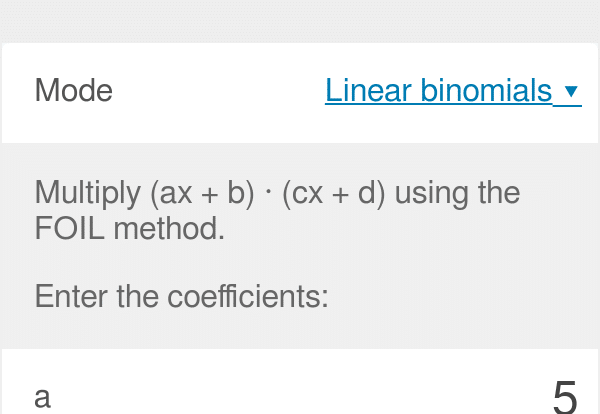A detective is a type of investigator that works for a law enforcement agency. Talking to witnesses, gathering physical evidence, and searching databases are the ways of gathering information to solve crimes. As a result, they can arrest criminals and take them to court. Private detectives might operate for the police or a private company.
After completing the criteria for becoming a police officer, some police departments need a person to attempt a written test. They have to pass the exam before the promotion of detective post. In many other police departments, detectives are college graduates. They join without working as police officers. Some claim that detectives perform a completely different job than cops, and hence need different training and skills. Some say that without initial experience as a cop, a detective will lack a detailed understanding. This will make it impossible to cooperate with normal cops.
How to become a detective agent?
A detective is a person whose job is to research, investigate, and solve cases. They are the ones who supervise the investigations. The detective’s working hours are not fixed or the same. They must research any topic, such as a business problem, a divorce case, and so on. You can’t discuss your thoughts with everyone. Detectives have to take these issues seriously.
During their investigation, they try not to disclose their identity. They also try to avoid harmful situations that may cause public suffering. As a result, the investigation process can take months or even years. Except for the difficult part, becoming a detective may be a rewarding career. It provides deep personal satisfaction from solving crimes and giving justice to victims.
Detectives tend to have a lot of professional freedom. Still, this is one of the things that attracts a lot of people to the industry. These specialists often pick when and how many customers they assist. They also pick the types of cases they take on. Private detectives must complete all training and licencing that is needed before they get this level of flexibility.
What kind of training is required to become a detective?
First of all the candidate must have a good sense of his job. The job of a detective is not a joke. Your decisions and work will affect others’ lives so you must have to be careful and experienced. That is why agencies promote an officer to the rank of detective after gaining a few years of experience. Learning how to interview witnesses, collect evidence, and interact with informants is an important part of training.
Certification and license required to become a detective
What city do you call home? That’s where you should begin. To discover it, you’ll need to run a search for your country/state. You must be aware of the licencing requirements. Not all states hold to the same set of rules. You must build active skills that enable you to do a more valuable investigation and better sense legal issues. Because each new client may present challenges that are unexpected to you. This is where you should begin. Do some research on your state. If someone else does it for you, you might want to reconsider your decision.
Across the last twenty-five years, agencies made many changes all over the world. However, in some locations, changes are almost yearly. As a result, you must be current on all data that you may need. I’ve met people having years of city police experience, a couple of years of law school, and military service. But that was a long time ago. A four-year degree was not an all-around need 20 or 30 years ago. What you should look for are not just standards, but also exceptions to the law. Some states may have linked programmes that would allow an agency to hire and train learners.
If you’ve graduated from college in a criminal investigation, then it would be a wonderful place to start. Above all, having a strong understanding of the law is essential. Being aware of the bounds you must logically fit and work within them.
How long does it take to become a detective?
It takes about six months of training to become a police officer. Officers then normally need four or five years of experience before taking a promotion exam to become a detective. Some police departments allow officers to replace a year of experience with a college diploma.
What Areas/Fields Does A Detective Work In?
Detectives can work in criminal investigations divisions.
- Drugs Task Force
- Department of Child Protection
- Field of expertise
- They can operate as a victim advocate with the 5 Fraud Squad.
How to become a detective after the 12th? Qualifications and requirements
The steps to becoming a detective differ relatively from one agency to the next. After working as a cop, they need you to pass a written test in some places. Anyone can apply for them. Before deciding on appointing them, they conduct an oral interview.
Getting seen by the right people and in the right way is the most important thing. It’s usually not a good idea to declare early on that “I want to be a detective.”
Being a detective is a secret job in many agencies. After a few years on uniformed patrol and seeking a position, they assign you as a detective. You work in detectives for 2-3 years before rotating back to uniformed patrol and handing it on to someone else.
Most people believe that having a college diploma will help them get a detective job. Some people believe that college graduates are hired as investigators rather than uniformed patrol cops. There are, without a doubt, organisations where a certificate will help you advance more quickly. You were far better off not mentioning your college degree if you had one. It wasn’t always a plus when it came to solving crimes.
Logical abilities and Special observational abilities
- One needs an understanding of state civil and criminal laws.
- Flexibility in working hours
- Thinking abilities
- Ability to Make Decisions
- Faculties of mind
- Techniques for problem-solving
- Ability to conduct research
- Effective Communication Techniques

How to become a detective without college?
Now, this depends totally on where you live or what the situations are. Firstly, if you want to be a detective directly, then you have to take a degree from college. But it is possible to become a detective without a college degree. For that, you have to pass the test to become a police officer first. You have to reach all the requirements that your state requires to become a police officer. After training and working hard for years as a police officer, you can apply for a promotion to detective. In this case, you will only need a good experience and personality. No college degree will matter in this case. But this procedure will take a few years as you have to work and gain experience as a cop first.
How much does a detective make?
In the United States, the primary annual income for detectives and criminal investigators was $74,300 in 2012.
To begin, the detectives and PIs in the United States indicated the following income ranges:
- The tenth percentile is $30,390.
- $37,030 (25th percentile)
- $50,510 (median) is the 50th percentile.
- $67,940 (75th percentile)
- $89,760 (90th percentile)
Police detectives and criminal investigators, on the other hand, reported much higher salary ranges:
- $44,860 in the tenth percentile
- $58,890 (25th percentile)
- $83,170 (median) in the 50th percentile
- $107,050 (75th percentile)
- $139,180 (90th percentile)
Job possibility of a detective
Employment growth for police and detectives is not expected to be large in the coming years. However, officers must already have a job to become detectives. It is due to the promotion procedure used by police agencies.
Detectives who wish to transfer to another police department should have a better chance. Especially those who have greater training and experience.
What are the possibilities for the promotion of detectives?
With more experience, new investigators may be promoted within their level. Detectives with higher ranks can teach other detectives and police officers. They can examine the work of other officers, and lead investigations into major crimes.
Detectives can advance to the ranks of captain, commander, and deputy chief through earning promotions. Each rise in the police agency brings with it increased management responsibility.
How do I go about getting a career as a detective?
Only if you are currently employed by a police department then you can become a police detective. If you’re a detective looking for a new position, check with other police agencies. Take a look at their sideways transfer standards. Most police departments only accept officers with a particular amount of recent job experience.
Transferring within your state may be easier because you already have the necessary qualification. If you transfer to another state’s PD, you have to complete additional training and meet the state’s certification requirements.
How to learn more about pursuing a career as a detective?
On their websites, several police agencies provide information on their promotion ladder and provisions.
You may be able to visit detectives and learn about their daily tasks and challenges.
Do detectives wear uniforms?
Although police detectives do not wear uniforms, they do follow a dress code. The majority of police detectives are dressed in suits. Plainclothes detectives wear a variety of business casual outfits. However, pants and jackets are the most common, depending on the season. Carrying weapons is also important.
How to become a detective in India?
In the following two ways, you can become a detective in India.
Firstly, you have to complete the PG course on criminology from a good college. Then you can start your career as a detective.
Secondly, you can try to clear the UPSC exam or any state selection exam.
Eligibility for the examination is to complete a UG degree from a college first.
How to become a detective in Canada?
- You must be 19 years old or older than that.
- You must have had no criminal records in the past.
- Also, you have to have a degree in a government licensing course.
- You must obtain at least 2400hrs of experience while training as a PI.
How to become a detective in South Korea?
Anyone who belongs to Korea can take an exam and become a cop. After working as a cop for a few years, you can apply to be a detective. Then according to your experience and performance, the authority will promote you as a detective.
How to become a detective in the USA?
- You have to be a residential member of that country.
- You must be 19 years old or more.
- If you are applying, then you must not have any criminal records.
- You should have a high school diploma or college degree.
How to become a detective in the NYPD?
The NYPD selects the best officers as detectives. So to become a detective, you have to join the NYPD as an officer first. Then high training and years of experience will help you get your dream position. The decision of promoting an officer from cop to detective is based on their merit and experience.
How to become a detective in the Philippines?
- The candidate must be a Filipino citizen.
- They have to have a high school diploma or college degree.
- Must be physically and mentally fit.
- The candidate should be between the ages of 21 and 50.
- Must be at least 5 feet 4 inches tall.
Can patrol officers become detectives?
No one becomes a detective without first serving as a patrol officer. Most agencies need you to have worked as a beat cop before applying for a detective post.
When you first start with the SO, you need three years of patrol experience to apply for a detective position. The only exception came in late 1978 when the sheriff decided to create a narcotics section. The first unit consisted of a sergeant and a few detectives.
Experience as a detective
We (the first narcotic team) opened our doors in January 1979. The person from the jail stayed for less than a month before leaving the SO to go to law school. When it became clear that we weren’t effective and would damage or kill someone, I left the unit in September.
Federal authorities, on the other hand, will occasionally hire criminal investigators who have no primary law enforcement expertise. About half of the forty persons in my DEA Academy class had previous law enforcement experience. Many people had been employed right out of college. (When one of the guys was employed, he was a semester away from finishing his MBA.) He should have continued his education in graduate school. A handful of them had previously worked as educators.








